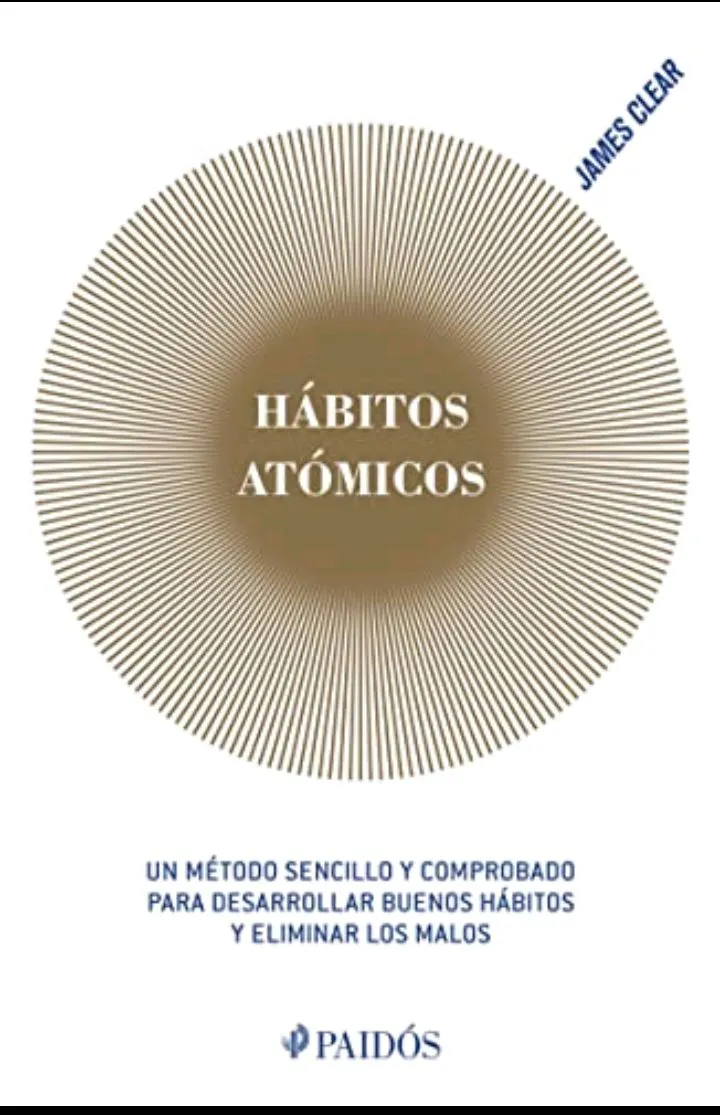Yo no se ustedes pero yo sueño con la grandeza, tener el poder para alcanzar mis metas y lograr todo lo que me proponga. Siempre tuve la idea de que para lograr cualquier cosa tenía que atravesar por un camino de espinas y sufrir en el proceso, ¿pero esto es realmente es cierto? ¿De verdad necesitas destruirte para lograr algo? ¿Hay alguna forma de disfrutar el camino? Eso nos promete este libro, que como bien dice su nombre, desarrollando pequeños hábitos diarios lograrás grandes resultados. Su autor es James Clear, escritor estadounidense centrado en los hábitos, la toma de decisiones y la mejora continua.
I don't know about you but I dream of greatness, to have the power to achieve my goals and accomplish everything I set my mind to. I always had the idea that to achieve anything I had to go through a thorny path and suffer in the process, but is this really true? Do you really need to destroy yourself to achieve something? Is there a way to enjoy the journey? That's what this book promises us, that as its name says, by developing small daily habits you will achieve great results. Its author is James Clear, an American writer focused on habits, decision making and continuous improvement.
¿Qué nos enseña el libro?
Este libro hace hincapié en la influencia de los buenos y los malos hábitos en tu rutina, y cómo la acumulación de acciones en un amplio período de tiempo desencadena grandes resultados, positivos o negativos, dependiendo de la calidad de tus hábitos. La repetición de hábitos forma la identidad, para lograr un objetivo debes convertirte en el tipo de persona que puede lograr esa meta, por ejemplo, si quieres correr una maratón hazte corredor, o si quieres desarrollar una página web hazte informático. Otro aspecto importante que abarca este escrito es la creación de un sistema para alcanzar tu objetivo, no pensar en la meta, sino en desarrollar una vía o un proceso para lograr dicho objetivo, si quieres escribir un libro tú no escribires el libro, tú escribes varias páginas del libro todos los días, hasta que un día, escribiste un libro.
What does the book teach us?
This book emphasizes the influence of good and bad habits in your routine, and how the accumulation of actions over a long period of time triggers great results, positive or negative, depending on the quality of your habits. Repetition of habits forms identity, to achieve a goal you must become the type of person who can achieve that goal, for example, if you want to run a marathon become a runner, or if you want to develop a website become a computer scientist. Another important aspect covered in this paper is the creation of a system to achieve your goal, not to think about the goal, but to develop a way or a process to achieve that goal, if you want to write a book you don't write the book, you write several pages of the book every day, until one day, you wrote a book.
Las 4 leyes para crear mejores hábitos
Cómo es difícil dejar un mal hábito es igual de difícil crear uno nuevo y mejor, la solución a este problema el autor lo resume en 4 sencillas leyes:
1. Señal
La señal es lo que le dice a nuestro cerebro que realice una acción, reconocer señales para realizar cualquier tipo de actividad es el primer paso para iniciar un hábito.
2. Deseo
Una vez que se forma el hábito el deseo es lo que te impulsa a seguir realizandolo, si no deseas algo no tendrías razón suficiente para tomar acciones que te hagan lograrlo.
3. Respuesta
La respuesta es el acto que realizas para lograr eso que tanto deseas. Esta acción se ve afectada por la dificultad de la misma, algo muy fácil nos aburre y muy difícil nos frustra, por ello es muy importante encontrar un punto medio.
4. Recompensa
Los logros son el propósito de cada hábito, y estos te recompensan creando una sensación positiva y haciendo más fuerte el deseo de realizar el hábito repetidamente.
The 4 laws to create better habits
As it is difficult to stop a bad habit, it is equally difficult to create a new and better one. The solution to this problem is summarized by the author in 4 simple laws:
1. Signal
The signal is what tells our brain to perform an action, recognizing signals to perform any type of activity is the first step to start a habit.
2. Desire
Once the habit is formed the desire is what drives you to keep doing it, if you do not want something you would not have reason enough to take actions that make you achieve it.
3. Response
The response is the action you take to achieve what you want so much. This action is affected by the difficulty of it, something very easy bores us and very difficult frustrates us, so it is very important to find a middle ground.
4. Reward
Achievements are the purpose of every habit, and these reward you by creating a positive feeling and making stronger the desire to perform the habit repeatedly.

James Clear, autor del libro. Fuente
- El libro también habla sobre la importa del entorno para mantener buenos hábitos, así como trucos, por decirlo de alguna manera, para realizar tus hábitos con constancia y mantenerlos, al menos, el resto de tu vida. Les aconsejo que lo busquen y se lo lean completo, varias veces incluso, y apliquen lo escrito lo antes posible, eviten llegar a una edad adulta sin saber sobre este libro, porque como dice el dicho “caballo viejo no aprende trote nuevo”
- The book also talks about the importance of the environment to maintain good habits, as well as tricks, so to speak, to perform your habits with constancy and keep them, at least, for the rest of your life. I advise you to look it up and read it in its entirety, several times even, and apply what is written as soon as possible, avoid reaching adulthood without knowing about this book, because as the saying goes "old horse does not learn new trot".
